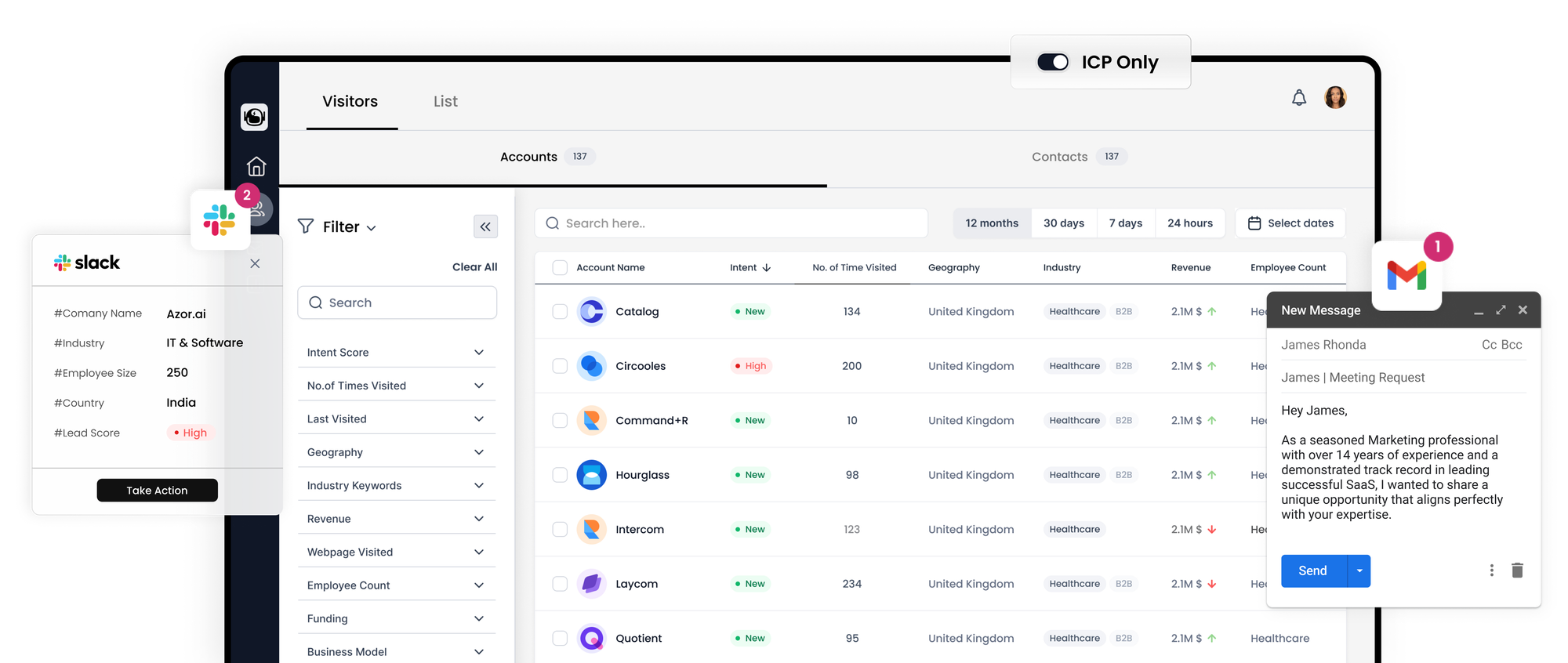Understanding the Different B2B Market Segments

B2B marketing is the practice of selling one company's products or services to another company. This field covers various activities from generating leads and raising brand awareness to fostering customer engagement and ensuring their loyalty. Compared to consumer marketing, B2B marketing tends to involve a lengthier sales cycle and generally demands a tailored approach to each customer.
The B2B arena can be broadly classified into four primary market segments: producers, resellers, government entities, and institutions. Each of these segments exhibits distinct traits and purchasing behaviors:

Producers:
Producers, or Original Equipment Manufacturers (OEMs), are companies that create products to sell to other businesses. These products often serve as components for other goods. Producers thrive on innovation, quality, and strong relationships in the marketplace.
To market effectively to producers, you must underscore how your offerings can elevate their production capabilities, enhance efficiency, or reduce costs. Utilizing case studies and endorsements can provide the necessary social proof of your value proposition.
Resellers:
Resellers purchase products or services with the intention of selling them again, usually in a niche or specialized market. They are adept at tailoring solutions based on a deep understanding of their customer base’s needs.
When targeting resellers, it's essential to demonstrate how your products or services can help them differentiate in the marketplace. This can be achieved by highlighting unique features or creating bespoke solutions that cater to their specific needs.
Government Entities:
Government bodies represent some of the largest purchasers worldwide, dealing in a vast array of products and services from technology to infrastructure and consulting. Securing government contracts can be lucrative, but the process is heavily regulated with stringent criteria.
To engage this segment, a thorough grasp of government procurement processes and regulations is imperative. You'll need to convincingly demonstrate your expertise and capacity to meet their strict standards.
Institutions:
Institutions, including nonprofits, educational establishments, healthcare providers, and research organizations, often operate with tight budgets and are on the lookout for cost-efficient solutions.
Marketing to institutions involves showing the distinctive advantages of your products or services, alongside evidence of your history of working with similar entities. It's about proving that you can deliver value while understanding and addressing their unique needs and constraints.
Illustrations of B2B Marketing Approaches and the Role of Decision-Makers
B2B marketing encompasses a broad array of approaches designed to connect with business clients. Here are some B2B marketing strategies commonly used to attract leads and boost sales:
Content Marketing:
This involves crafting and distributing educational content to attract and engage potential clients. Forms of content marketing include blogs, white papers, e-books, infographics, and videos. When executed well, this strategy can establish a company as an authoritative voice within its sector, earning trust and credibility.
Social Media Marketing:
Utilizing platforms like LinkedIn, Twitter, and Facebook, this strategy engages potential clients, promotes offerings, and drives website traffic. Social media allows for precise targeting and direct engagement with potential leads.
Email Marketing:
Through targeted emails, this strategy promotes offerings and conveys industry insights, fostering relationships with potential clients. A successful email campaign relies on a well-crafted message, a refined email list, and a compelling call to action.
Account-Based Marketing:
This highly personalized approach focuses on specific, high-value accounts with tailored marketing messages. It’s predicated on an in-depth understanding of targeted accounts, including their challenges and requirements.
B2B Marketing Consultancy:
Consultants in B2B marketing can guide companies in formulating strategies and executing campaigns. Their services span market research, lead generation, content creation, and social media management.
B2B Market Research:
This foundational element informs successful B2B marketing strategies by providing insights into customer needs, market trends, and competitive dynamics.
Engagement through Industry Events:
Networking events serve as a potent platform for B2B marketers to interact with potential clients, stay informed on industry shifts, and display their offerings. Attending, or better yet, hosting such events, can yield direct leads and strategic insights.
Developing a B2B Marketing Plan:
A marketing plan should be rooted in a comprehensive understanding of the market and should articulate a company’s value proposition. It should outline clear goals, audience targeting, messaging, tactics, and success metrics, informed by the insights gained from market research and industry events.
Market Segmentation:
This process entails dividing the market into specific segments based on distinct attributes like industry, company size, or job title. Such segmentation allows for more precise and effective marketing efforts. Given the typically narrower scope of the B2B market compared to B2C, meticulous and well-researched marketing plans are vital for success.
